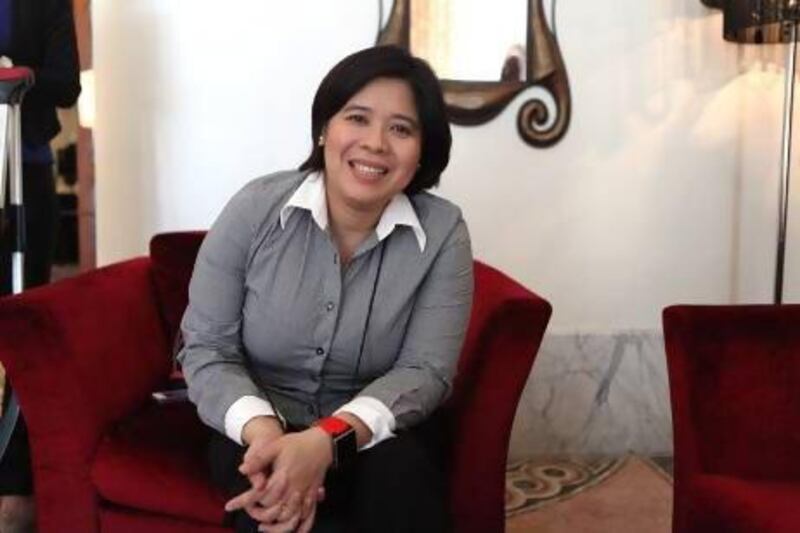ABU DHABI // Automated voting for Filipino expatriates in the UAE will push through next week despite concerns that the condition of the optical-scan voting machines may hinder safe and fast elections.
Abu Dhabi and Dubai are among five Middle East cities where the automated system will be used by the Philippines' Commission on Elections (Comelec). The others are Kuwait, Riyadh and Jeddah.
Seven voting machines will be sent to Abu Dhabi and six to Dubai, according to Comelec.
There are 29,943 voters in Abu Dhabi and 68,263 voters in Dubai and the Northern Emirates who are eligible to vote at the embassy or consulate from April 13 to May 13, the day of the election in the Philippines.
"The machines are totally new to us," said Nhel Morona, the country co-ordinator for Migrante Middle East, a migrant-rights group.
"We're not saying the voters will not learn how to use them, but we're more concerned about the condition of the machines and the possibility of spoiled or invalid ballots."
Precinct Count Optical Scan (PCOS) machines were first used in the May 2010 national elections in the Philippines and in Singapore and Hong Kong.
Voters darken an oval opposite the name of their preferred candidate and party instead of writing out the details. The ballot is fed into the machine and, after the polls close, it counts the votes. The results are then transmitted electronically.
Migrante's branch in Hong Kong, where electronic voting was introduced in the 2010 elections, reported "irregularities" in the conduct of elections. The PCOS machines failed to work for an hour in Hong Kong, a problem officials blamed on moisture.
"The assurance we can give is that we will do everything possible to address this concern to the independent experts on these machines," said Jose Brillantes, an undersecretary at Manila's foreign affairs department who heads the overseas absentee voting secretariat.
Lucenito Tagle, the chairman of Comelec's committee on overseas absentee voting, said all the machines were being monitored by IT personnel who had already addressed any glitches that may have occurred in Hong Kong.
"We pay special attention to the training of the people to make sure that they are knowledgeable on how the machine operates and the required environment or condition of the place or polling precinct where the machines will be placed," he said.
Yesterday, Grace Padaca, another Comelec official, also tried to allay fears among voters.
"We have made the necessary preparations to minimise and eliminate the glitches," she said.
The commissioner led the three-day briefing on overseas absentee voting in Abu Dhabi attended by Filipino diplomats from embassies in the Middle East, Europe and the Subcontinent.
Another briefing on the use of the voting machines will be held from April 7 to April 9 in Abu Dhabi.
Grace Princesa, the Philippine ambassador to the UAE, said she hoped Filipinos would realise the importance of the power of one vote.
"It can make a big difference in our government and in our lives," she said.
In the 2010 presidential elections, only 7,917 of the 47,720 Filipino overseas voters in the UAE cast their ballots at the Abu Dhabi embassy and Dubai consulate.






